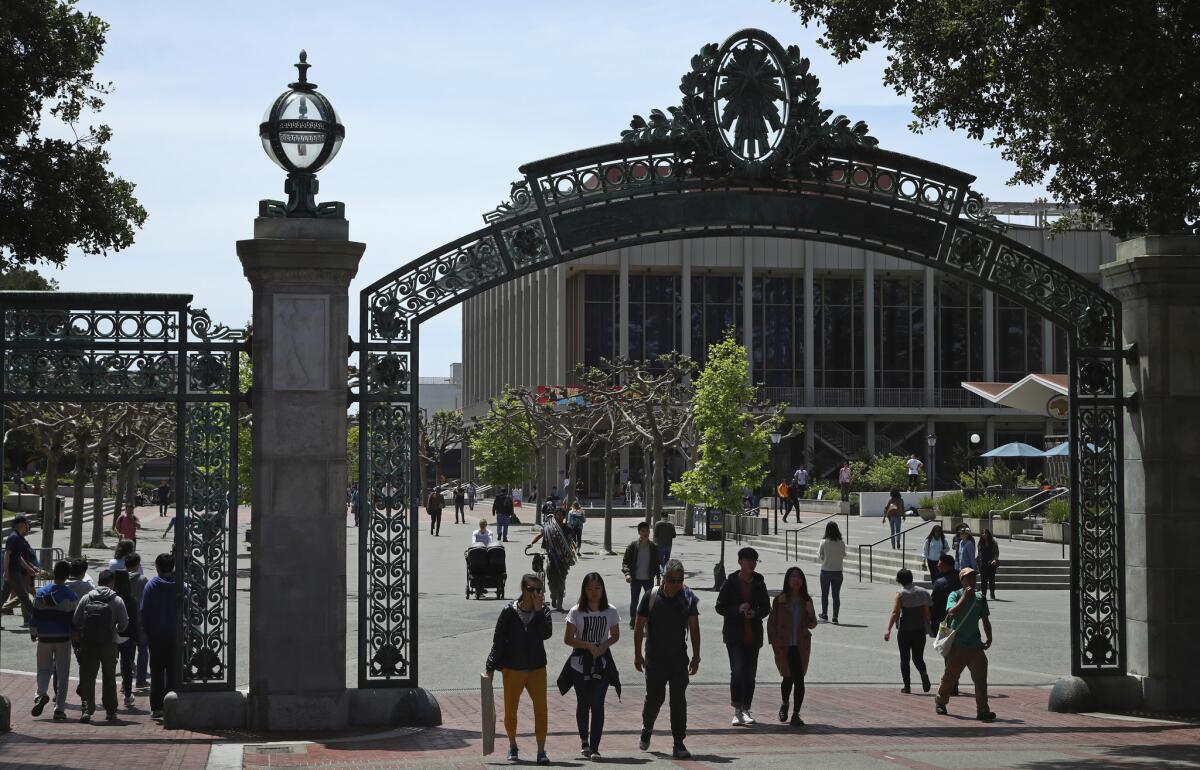The Focused Student: College applications and dating apps

- Share via
Applying for college is like a dating app — for both sides. Schools attempt, on the basis of a transcript, an essay, test scores (sometimes) and letters of recommendation (sometimes), to determine if a student is the kind of student they want to meet. Students, on the other hand, attempt to present a picture of themselves that is what they think a particular school wants to see.
These days, we see far too many students calculating what classes to take, what extracurricular activities to pursue, and what summer jobs to seek based on what they think a particular school will want. After the top 75 colleges the rest really want you but they want the real you. Otherwise the result is far too often an unhappy student and ultimately a mismatch between student and college. Present the real you.
The calculation often begins in earnest when students are high school freshmen. That’s when students begin focusing on what school they want to attend, and shaping their classes to that school’s perceived preferences. They then participate in certain on- or off-campus activities because they think it “looks good” on their record.
As in dating apps, the best match is one where both parties really know and want one another as they really are. We encourage students to be themselves. Don’t volunteer for things you aren’t really interested in. Don’t take certain non-required classes just because you think they puff up your transcript. And don’t pretend that your lifelong dream is to be an engineer when in fact you really can’t stop thinking about the arts.
Another similarity between dating apps and college admission is that students too often labor under the belief that there is one “perfect” person (or college) for them. This leads to a lot of disappointment in both life and college.
The U.S. Department of Education lists more than 4,000 degree-granting colleges in the U.S. Far too many students choose a college because it’s where a parent went, or where friends are going, or because it is prestigious.
Far too few ask, “Is this really the right school for who I am?” Not everyone will prosper at a Harvard or Stanford, even if they can be admitted. Keep your options open.
So, what should a student show a college? Good grades help, but beyond the high-visibility schools many colleges offer entry to students who have modest records of high school academic success because they realize that some students mature later than others, and some students need the challenge of college to show their real capabilities. Colleges are really looking for students eager to learn, consistent, steady paced and challenging themselves.
Colleges like to see signs of curiosity, inquisitiveness and growth. The STEM-focused student who takes a summer art class is showing curiosity and a willingness to move outside his/her comfort zone. That’s a plus. Travel increases students’ ability to understand others, an important college skill. A second language is an asset, for much the same reason.
Of course, a student must fulfill the minimum entrance requirements of whatever school he or she is applying to. Some schools, such as those in the University of California system, publish a list of specific course requirements; others are less specific. If in doubt, call an admissions officer and ask. They are there to help you.
Standardized tests such as the SAT were once a major component of the college entrance decision. That is becoming less true as schools work to identify other markers that predict success and that do not select for only one kind of students. Many colleges today are working hard to create student populations that are diverse not only racially and culturally, but also in terms of life experiences and interests.
There is no “perfect” college, just as there is no “perfect” student. There are, however, tens of thousands of well-made matches every year, in which schools accept students likely to succeed at that specific school, and students find schools that reflect who they are and who they want to be.
Be yourself and you will find a school that fits.
Sharing the byline this week with Robert Frank on his monthly “Focused Student” column are Michael Clapp, who has 16 years’ experience as a college counselor at Servite and St. Francis high schools and Brian Weiss, a former college admissions “reader.”
Support our coverage by becoming a digital subscriber.
